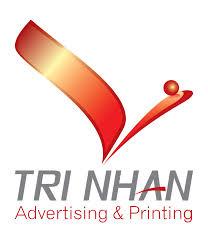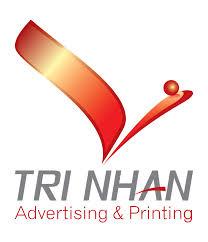The United States Solid State Battery Market Share is witnessing substantial growth as industries, automotive manufacturers, and energy storage providers shift toward advanced battery technologies. As Per Market Research Future, the rising adoption of electric vehicles (EVs), increasing demand for safer and high-performance energy storage solutions, and continuous innovations in solid-state chemistry are driving this market forward.
Solid-State Batteries: The Next Generation of Energy Storage
Solid-state batteries (SSBs) represent a significant evolution from traditional lithium-ion batteries, replacing liquid electrolytes with solid materials. This transformation enhances safety by reducing risks associated with leakage or combustion, a critical factor for electric vehicles and large-scale storage systems. Additionally, solid electrolytes allow higher energy density, longer life cycles, and faster charging capabilities, making them highly attractive across multiple applications.
Rising Electric Vehicle Adoption
The EV sector is a primary driver for solid-state battery adoption in the United States. Automakers are actively investing in research and development to integrate SSBs into next-generation vehicles. These batteries offer superior safety and higher energy density, which translates to extended driving ranges and shorter charging times—a crucial advantage for consumer adoption of EVs.
Government incentives and state-level policies promoting clean transportation accelerate EV adoption, creating a fertile environment for SSB deployment. The need for lightweight, high-capacity, and reliable batteries aligns perfectly with the solid-state battery’s capabilities, supporting the growth of the U.S. market.
Energy Storage Systems and Grid Applications
Beyond transportation, solid-state batteries are increasingly used in energy storage systems (ESS) to enhance grid stability and renewable energy integration. The variability of solar and wind power requires robust storage solutions to maintain a consistent energy supply. Solid-state batteries provide high-efficiency storage, longer cycle life, and compact form factors, which are essential for both utility-scale and decentralized energy applications.
As the U.S. energy sector increasingly integrates renewable sources, energy providers and technology companies are exploring solid-state battery solutions to optimize storage performance while minimizing maintenance and safety risks.
Technological Advancements Fuel Market Growth
Innovation in solid-state battery technology continues to improve energy density, charging speed, and operational safety. Researchers focus on developing new solid electrolytes with enhanced ionic conductivity and mechanical stability. Additionally, advancements in manufacturing techniques aim to reduce production costs, a critical factor for large-scale adoption across EVs and energy storage markets.
Industry collaborations between battery manufacturers, automotive companies, and research institutions further accelerate technological progress. Pilot projects and prototype deployments are paving the way for commercial-scale production, which is expected to strengthen the market over the next few years.
Safety and Sustainability Considerations
Safety remains a key differentiator for solid-state batteries compared to conventional lithium-ion batteries. The elimination of flammable liquid electrolytes reduces the risk of fires, thermal runaway, and chemical leakage. This advantage is particularly important for automotive, aerospace, and stationary storage applications where high safety standards are mandatory.
Sustainability is another factor boosting adoption. Solid-state batteries potentially reduce the need for certain hazardous materials, and their longer lifespan contributes to less frequent replacements, lowering overall environmental impact. As sustainability regulations tighten, companies are increasingly turning to solid-state technology to meet green energy objectives.
Investment and Market Expansion
Significant investments in solid-state battery startups and technology development are fueling market expansion in the United States. Venture capital, government-backed initiatives, and corporate funding are directed toward scaling manufacturing processes and commercializing innovative designs.
North American automotive manufacturers and energy storage providers recognize the long-term benefits of solid-state batteries in terms of performance, safety, and sustainability. As production ramps up and economies of scale improve, costs are expected to decrease, making SSBs more accessible across multiple applications.
Challenges and Market Outlook
Despite strong growth potential, challenges remain in the United States solid-state battery market. High production costs, scalability issues, and complex manufacturing requirements are barriers that manufacturers continue to address. Additionally, integrating new solid-state technologies into existing supply chains requires careful planning and collaboration across stakeholders.
Nevertheless, the outlook remains highly positive. Solid-state batteries are positioned to revolutionize the EV, energy storage, and consumer electronics sectors. Continuous innovation, government support, and increasing demand for high-performance energy solutions are expected to drive sustainable market growth over the next decade.
FAQs
1. What advantages do solid-state batteries offer over traditional lithium-ion batteries?
They provide higher energy density, enhanced safety, longer lifespan, and faster charging capabilities compared to conventional lithium-ion batteries.
2. How are solid-state batteries influencing electric vehicle development?
SSBs enable longer driving ranges, faster charging, and improved safety, which are critical factors for the adoption of next-generation electric vehicles.
3. What industries are adopting solid-state batteries besides automotive?
Energy storage, consumer electronics, aerospace, and grid applications are key sectors leveraging solid-state technology for efficiency, reliability, and safety.
More Related Reports:


